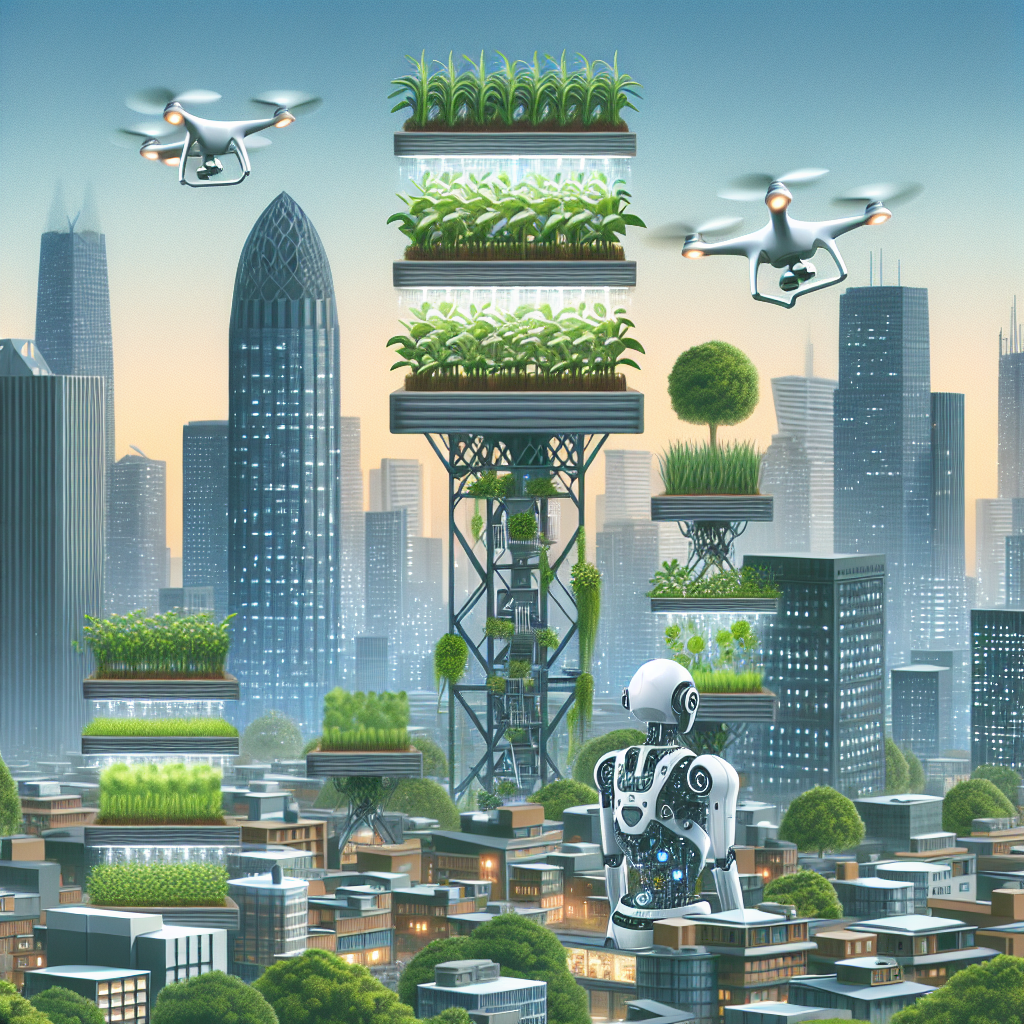The Role of AI in Urban Agriculture
Urban agriculture is becoming increasingly important as cities around the world face challenges such as food insecurity, environmental degradation, and population growth. As a result, there has been a growing interest in using technology, particularly artificial intelligence (AI), to improve and optimize urban farming practices.
AI has the potential to revolutionize urban agriculture by providing farmers with valuable insights and data that can help them make better decisions and increase their yields. From monitoring plant health to optimizing irrigation systems, AI can play a crucial role in ensuring the success of urban farming initiatives.
One of the key advantages of AI in urban agriculture is its ability to collect and analyze vast amounts of data in real-time. This data can be used to monitor plant growth, detect diseases or pests, and optimize resource usage such as water and nutrients. By leveraging AI, urban farmers can make informed decisions that can lead to higher crop yields and improved sustainability.
Another key benefit of AI in urban agriculture is its ability to automate certain tasks, such as watering or harvesting crops. This can help reduce labor costs, improve efficiency, and enable farmers to focus on more strategic aspects of their operations. For example, AI-powered drones can be used to monitor crops from above, identifying areas that may need attention and alerting farmers to potential issues.
AI can also play a role in improving the sustainability of urban agriculture by optimizing resource usage and reducing waste. For example, AI-powered sensors can monitor soil moisture levels and adjust irrigation systems accordingly, reducing water usage and preventing overwatering. Similarly, AI can help farmers optimize fertilizer usage, reducing the risk of nutrient runoff and pollution.
In addition to improving efficiency and sustainability, AI can also help urban farmers improve the quality of their crops. By analyzing data on factors such as soil composition, temperature, and humidity, AI can help farmers optimize growing conditions to produce healthier, more nutritious crops.
Overall, the role of AI in urban agriculture is significant and promising. By leveraging AI technologies, urban farmers can improve efficiency, increase yields, and contribute to a more sustainable food system.
FAQs
Q: How can AI help improve crop yields in urban agriculture?
A: AI can help improve crop yields in urban agriculture by providing farmers with valuable insights and data that can help them optimize growing conditions, monitor plant health, and detect issues such as diseases or pests. By leveraging AI, farmers can make informed decisions that can lead to higher yields and improved sustainability.
Q: Can AI help reduce labor costs in urban agriculture?
A: Yes, AI can help reduce labor costs in urban agriculture by automating certain tasks such as watering or harvesting crops. By using AI-powered technologies such as drones or sensors, farmers can streamline their operations, improve efficiency, and focus on more strategic aspects of their farming activities.
Q: How can AI contribute to the sustainability of urban agriculture?
A: AI can contribute to the sustainability of urban agriculture by optimizing resource usage, reducing waste, and improving efficiency. By monitoring factors such as soil moisture levels, temperature, and nutrient levels, AI can help farmers optimize growing conditions and reduce the environmental impact of their operations.
Q: What are some examples of AI technologies used in urban agriculture?
A: Some examples of AI technologies used in urban agriculture include drones for crop monitoring, sensors for soil moisture detection, and algorithms for crop optimization. These technologies can help farmers improve efficiency, increase yields, and contribute to a more sustainable food system.

